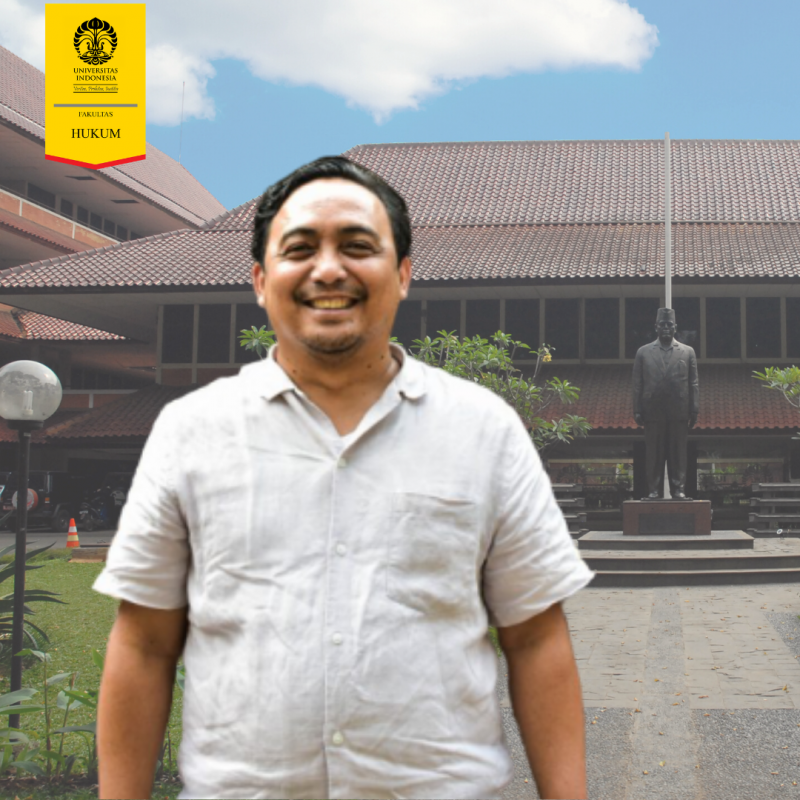The content of the Work Creation Bill continues to draw criticism from various circles. Now, a number of critical notes have come from academics. One of the substances that are in the spotlight on environmental and natural resources issues in the Job Creation Bill is the concept of strict liability and the regulation of the application of sanctions.
Professor of the Faculty of Law, Universitas Indonesia (FHUI) Prof. Andri Gunawan Wibisana, seeing the academic text of the Job Creation Bill amending Article 88 of Law No.32 of 2009 concerning Environmental Protection and Management, in particular, the phrase “absolutely responsible” to “responsible” and “without the need for proof of an element of error” becomes “based on valid evidence”
The reason used to remove the concept of absolute liability (strict liability) in the academic text of the Job Creation Bill is “because every crime must be imposed because of evidence.” According to Andri, the pretext of the academic text used to amend Article 88 of Law No.32 of 2009, misunderstands strict liability.
Most importantly, he said, strict liability is not related to crime, but civil, this is evidence of fatal errors in the academic paper of the Job Creation Bill. Andri emphasized that strict liability has been adopted by many countries and recognized in environmental law in Indonesia since 1982. “The elimination of the concept of strict liability is a setback for 40 years,” he said in a webinar entitled “Weakening of the Environmental Law in the Job Creation Bill: Voices from Academics”, Thursday ( 3/9/2020). (Also Read: Three Indications of State Capture Corruption in the Job Creation Bill)
In addition, the Job Creation Bill removes administrative sanctions as regulated in Article 76 paragraph (2) of Law No.32 of 2009. Government coercive sanctions as stipulated in Article 80 No.32 of 2009 are still maintained. Given that the Job Creation Bill removes environmental permits and replaces them with environmental approvals, it is unlikely that there will be sanctions for revoking environmental permits.
According to Andri, the criminal sanctions related to the environment regulated by the Job Creation Bill are very absurd. For example, the Job Creation Bill amends many criminal articles such as Articles 98, 99, 102, 104, 109, and 110 of Law No.32 of 2009. The main criminal sanctions available for a number of these articles are in the form of imprisonment. Whereas criminal sanctions take the form of not only imprisonment but also fines, and criminal sanctions for corporations cannot be in the form of imprisonment/imprisonment.
He considered the impact of the Job Creation Bill because it changed many criminal articles in Law No.32 of 2009, namely that it was no longer possible to apply corporate crime. And to make the enforcement of criminal law inconsistent, for example, Articles 100, 101, 105, 106, 107, 108 of Law No.32 of 2009 which are not amended by the Job Creation Bill, this provision can still be subject to corporate responsibility.
“The implementation will be strange. Article 98 is a serious violation but prioritizes the imposition of administrative sanctions. Meanwhile, Article 102 is not a serious violation, but can be directly punished, “he explained.
Seeing these provisions, Andri is of the opinion that the Job Creation Bill does not consider activities that endanger the public as a criminal act. For example, pollution without permission. Even though in practice in various countries this is a criminal act. If administrative sanctions are imposed for criminal acts that occur, it is not only theoretically contradictory but also makes administrative law enforcement troublesome in Indonesia.
According to Andri, this is a misinterpretation of the pretext that prioritizes the application of administrative sanctions in the Job Creation Bill as a form of implementing the ultimum remedium (last resort). The application of the ultimum remedium must pay attention to the effectiveness of implementing administrative sanctions. Meanwhile, the reference to the Job Creation Bill is not effectiveness, but the ability to pay fines for violators.
“This will lead to discrimination because only people who do not have money to pay fines will be jailed later,” he criticized.
For him, the Job Creation Bill narrows down the options for choosing a sanction because it takes priority on administrative matters. It should be regulated proportionally between administrative and criminal sanctions. The sanction arrangement in the Job Creation Bill makes the imposition of sanctions limited, whether administrative or criminal.
Likewise, the civil accountability stipulated in the Job Creation Bill shows that this regulation will not only provide business convenience (licensing) for investors but also guarantee that there will be no legal consequences if the business activities carried out later cause pollution and damage.
If the government and DPR continue to insist on prioritizing administrative sanctions in the Job Creation Bill, Andri proposes that reformulation of the definition of “government coercion” or “forced money” is an administrative sanction that repairs violations. Then “administrative fines” as administrative sanctions that are punishing.

